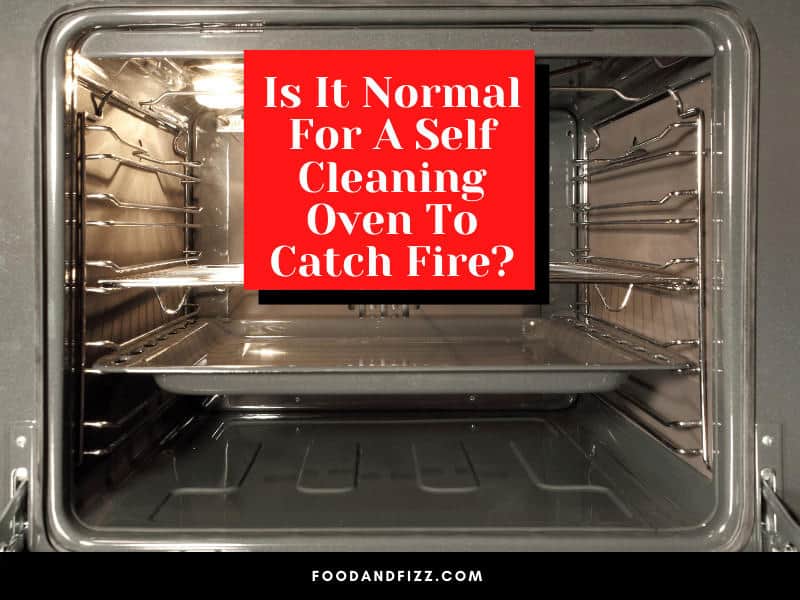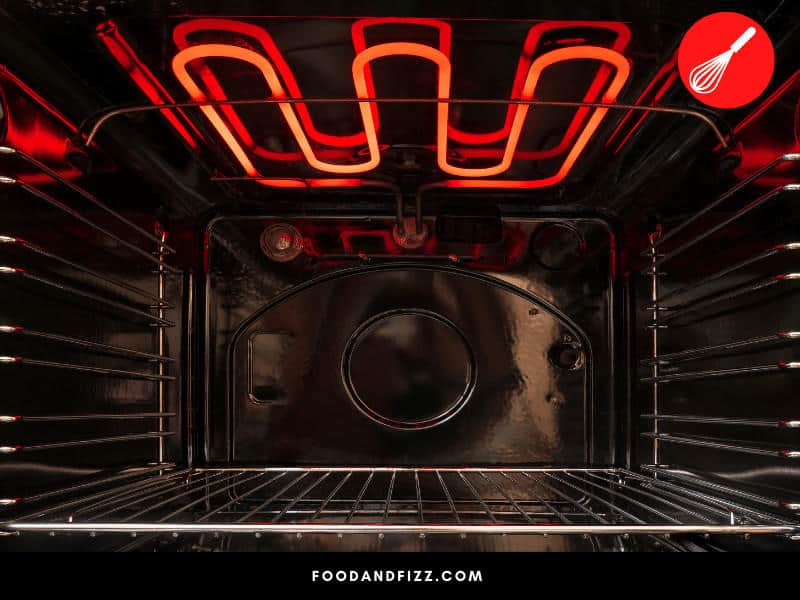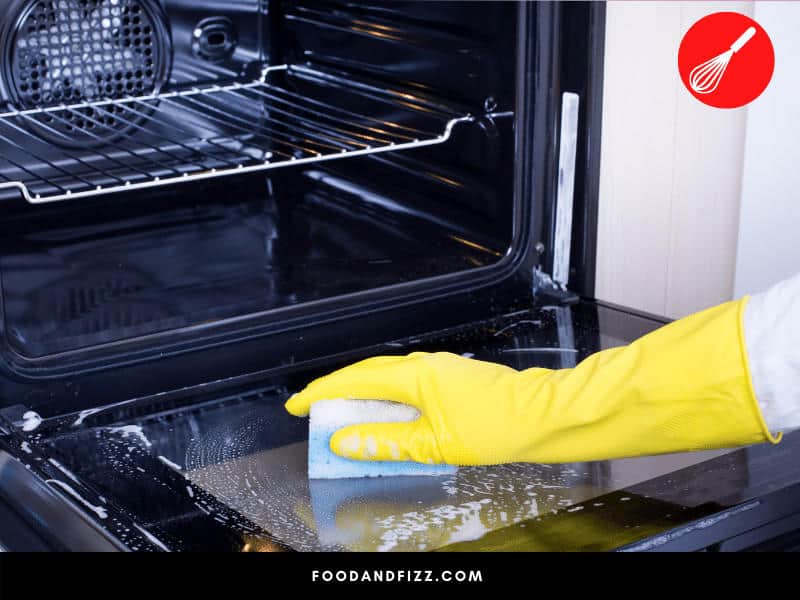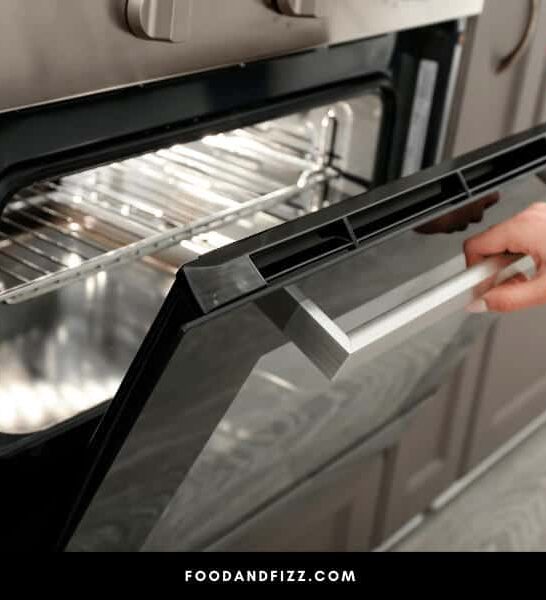If you have a self-cleaning oven or have taken advantage of this feature, you are probably all too familiar with the smoke and foul odors that your oven emits during the self-cleaning cycle.
You may have even had the unfortunate experience of your oven catching on fire. If this has happened more than once, it’s only natural for you to wonder whether this is normal- or if it’s time to buy a new oven.
Many people would probably be afraid to even run the self-cleaning cycle after the first fire has broken out or they may attribute the incident to grease build up.
But if your oven self cleans automatically or the fires have broken out repeatedly, you’ll definitely begin to worry about the safety of your ovens self-cleaning feature.
Is It Normal for Self-cleaning Ovens to Catch On Fire?
It is normal for self-cleaning ovens to catch on fire during the cleaning cycle- especially if there’s grease residue or food remnants in the oven. However fires should never be written off as a ‘normal’ occurrence. Even if your self-cleaning oven doesn’t catch fire, you will probably notice that it emits smoke and fumes while the cleaning cycle is running.

Self-cleaning Ovens Catch Fire and Emit Smoke and Fumes
While you would probably never use the word ‘normal ‘ to describe a fire, it’s disturbingly common for self-cleaning ovens to catch fire.
Your oven heats to dangerously high temperatures while the self-cleaning cycle is running- up to 1000 degrees Fahrenheit!
If that fact alone doesn’t scream fire hazard, when you factor in grease residue and food particles, you have a recipe for disaster.
Sure, you may very well know people who have been using their self-cleaning oven for years and never experienced the misfortune of a kitchen fire, but that certainly doesn’t mean that a fire will never occur. It just hasn’t happened to them- yet.
Even if a fire doesn’t break out, ovens will almost certainly emit smoke and fumes while the cleaning cycle is running.
And this is perfectly normal when it comes to self-cleaning ovens- for lack of a better word.
But it doesn’t mean that it’s safe. There are long-term health consequences of inhaling smoke, carcinogens, and carbon monoxide.

What to Do If Your Self-cleaning Oven Catches Fire
It can be absolutely terrifying when your self-cleaning oven catches on fire- especially since you won’t be able to open the oven door to put the fire out.
Self-cleaning ovens have a safety lock mechanism that activates when the cleaning cycle is running to prevent burns from high temperatures.
So, grabbing your fire extinguisher won’t do you a bit of good. All you can do is try to turn the oven off and stand there as you wait for the fire to go out on its own.
But you should never open the oven door during a fire anyway, as oxygen will only further fuel the fire.
The best course of action is to evacuate the house and call 911 immediately. The fire may burn out on its own before help arrives, but it’s better to be safe than sorry. At least the fire department will already be at your home if the fire gets out of control.

Why You Shouldn’t Use the Self-cleaning Cycle
Fires can very well break out in self-cleaning ovens, but if these ovens were really so dangerous, wouldn’t they have been taken off the market?
But consumers will often take risks and make sacrifices for the sake of convenience, and as long as the oven comes equipped with a warning label, they are making an informed decision.
But this doesn’t mean that it’s a wise decision. Just the smoke and fumes emissions alone pose a safety hazard to you and your family.
It’s advisable to invest in a carbon monoxide detector and open your kitchen windows while using the self-cleaning cycle. If you have children, you should only run the cleaning cycle when they aren’t home. Or better yet, not run it all.
Aside from potentially losing your home due to an oven fire, long-term exposure to smoke, carcinogens, and carbon monoxide can increase your risk of cancer, respiratory problems, and carbon monoxide poisoning.

How to Prevent Oven Fires in Your Kitchen
Even if you decide to pass on the self-cleaning feature, you still aren’t exempt from oven fires. Most house fires start in the kitchen, which is why you should always take fire safety precautions when cooking.
Of course, you should definitely invest in a fire extinguisher and working smoke detector, but you should also never leave the oven unattended while in use, cover dishes that may splatter, and make sure that your oven has been serviced and in good repair.
These simple common sense suggestions can help protect your home and family from a potentially disastrous oven fire.
Conclusion to Is it Normal for A Self Cleaning Oven to Catch Fire?
Technology has opened the doors to many new innovative features that most people take advantage of. But self-cleaning ovens are one technological advance that you should pass on. It’s common for self-cleaning ovens to catch fire- or at the very least- emit smoke, carcinogens, and toxic fumes.

Sure, manual oven cleaning is one of the most dreaded kitchen chores that requires time and a lot of elbow grease. But it’s well worth the hassle to protect yourself, your home, and your family from the dangers of self-cleaning ovens.
Frequently Asked Questions on Is it Normal for A Self Cleaning Oven to Catch Fire?
Is it OK to Be In the House When the Oven is Self-cleaning?
You actually can’t leave the house while the self-cleaning cycle is running as the high level of heat and emitted fumes pose a fire hazard. You should open your kitchen windows while your oven is self-cleaning to release the smoke and fumes and be prepared to respond to possible fire.
Does Self-cleaning Damage an Oven?
The elements in your oven will heat up to a whopping 1000 degrees Fahrenheit while the self-cleaning cycle is running, which is much higher than the maximum temperature used when baking. Over time, this could blow the fuses in your oven and damage control panels, which can also pose a fire hazard.
Can You Get Carbon Monoxide Poisoning From a Self-cleaning Oven?
Self-cleaning ovens do emit dangerous and toxic fumes during the cleaning cycle, including dangerous levels of carbon monoxide. Since you need to stay home when the self-cleaning is running, you will be exposed to carbon monoxide. While you can always open your kitchen windows, it’s safer to just clean your oven manually.

